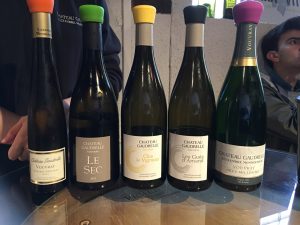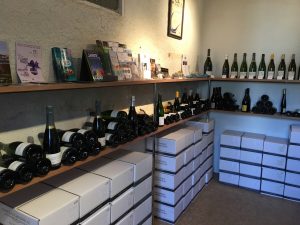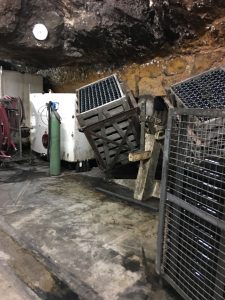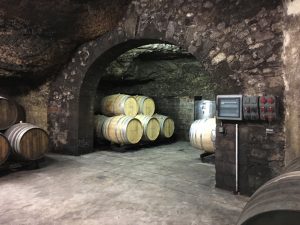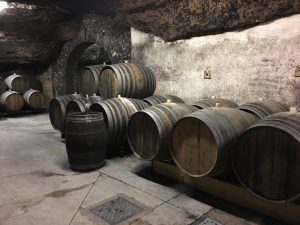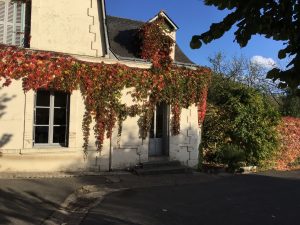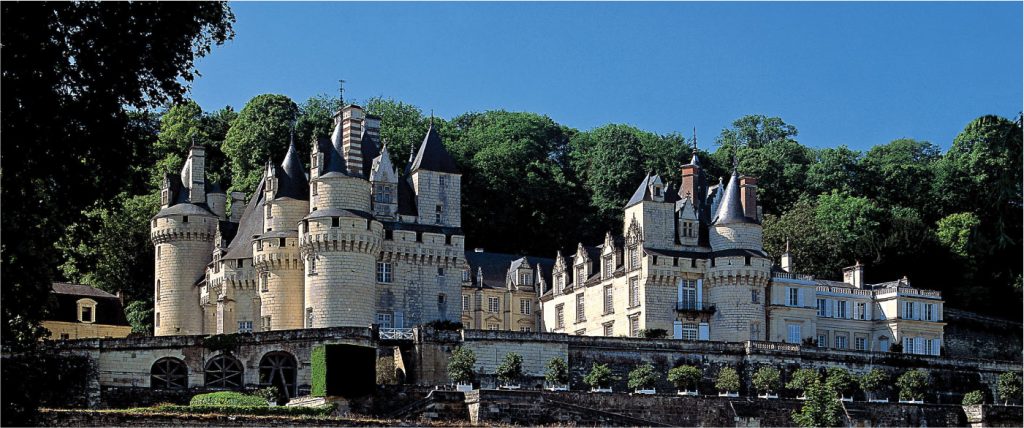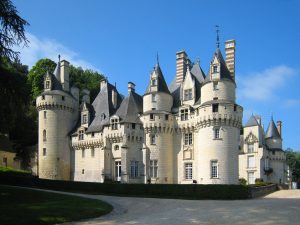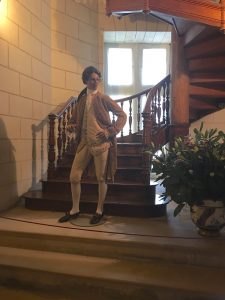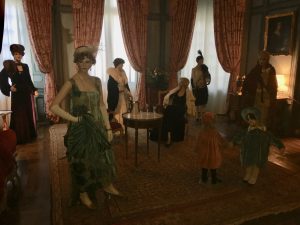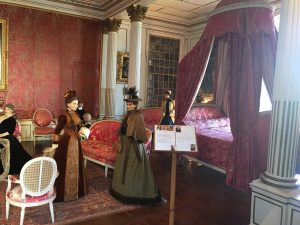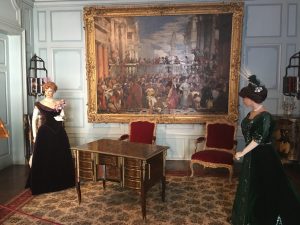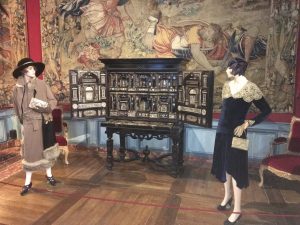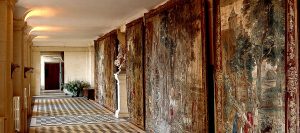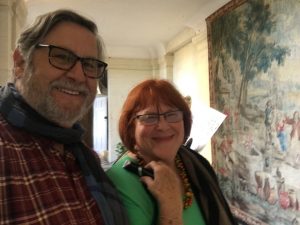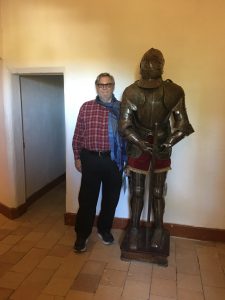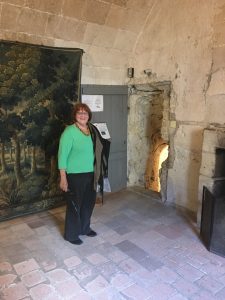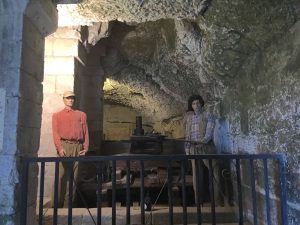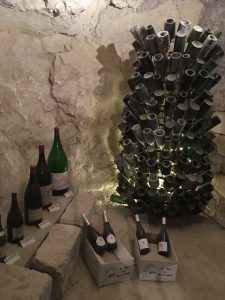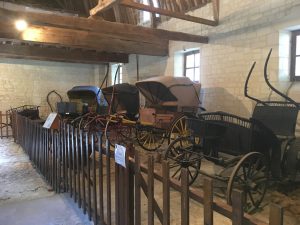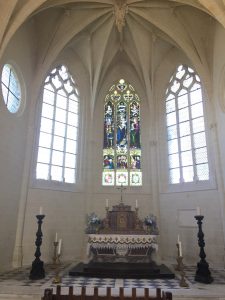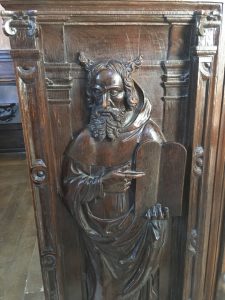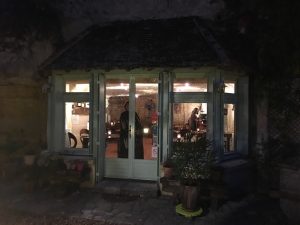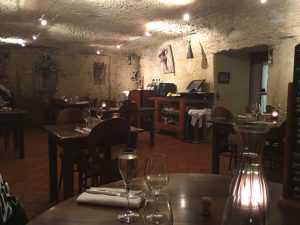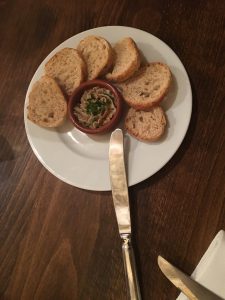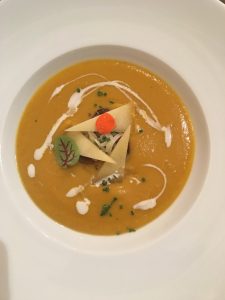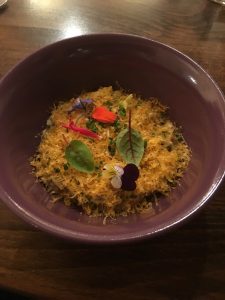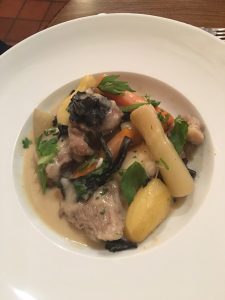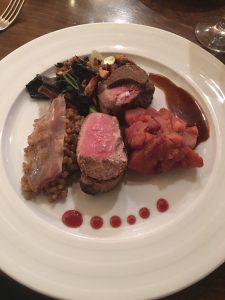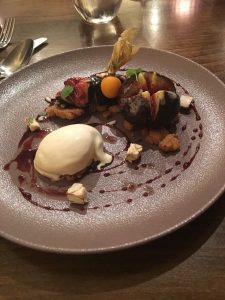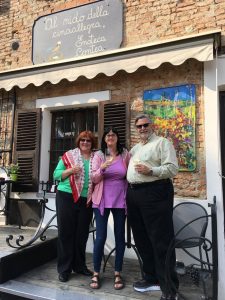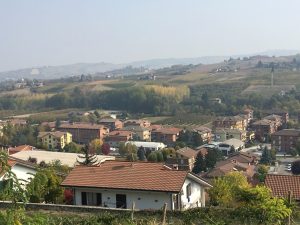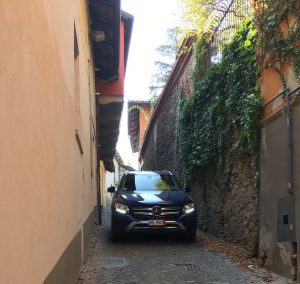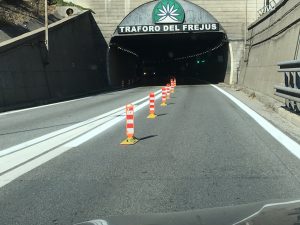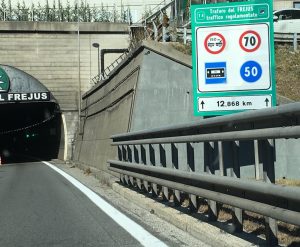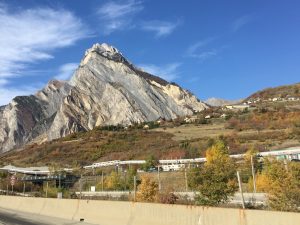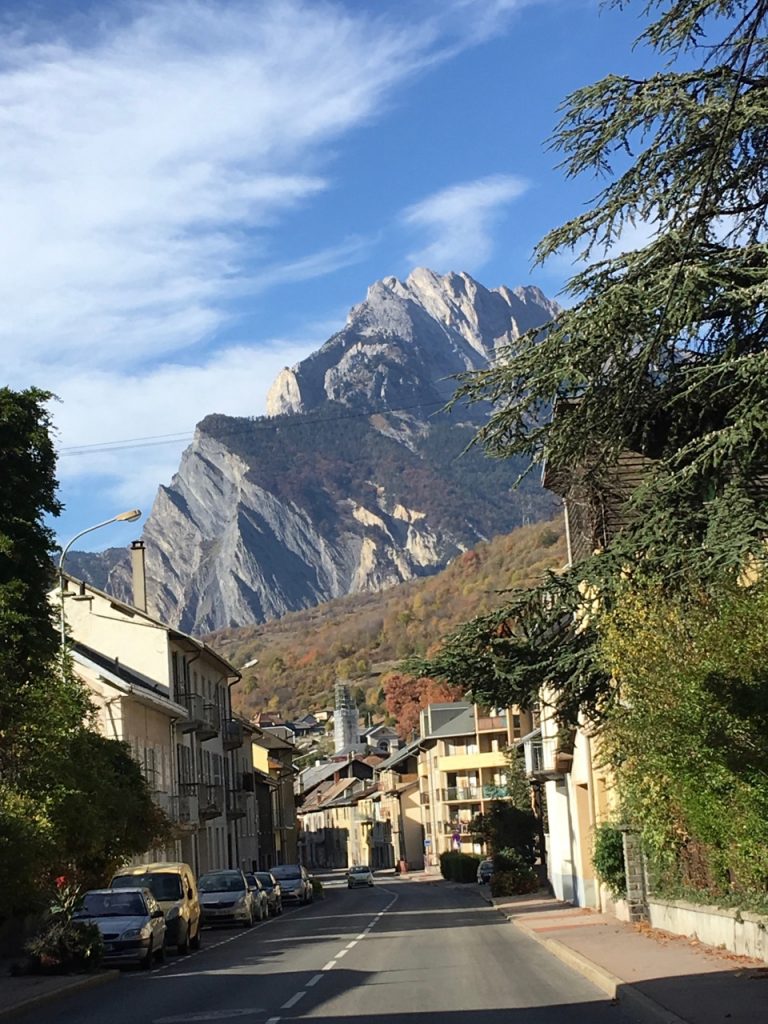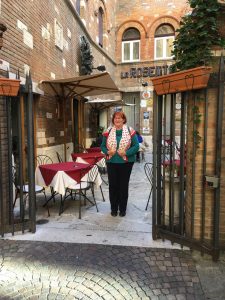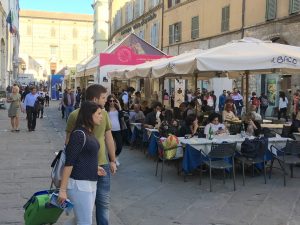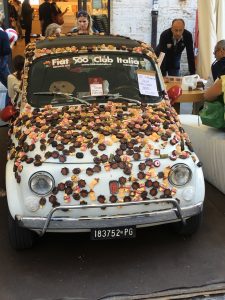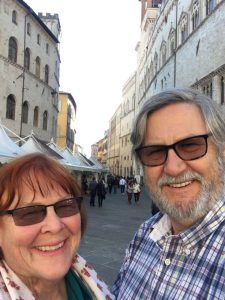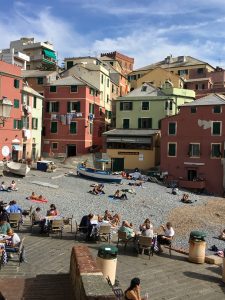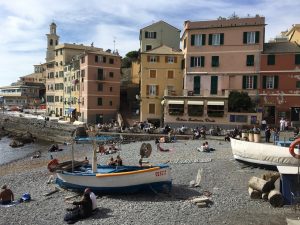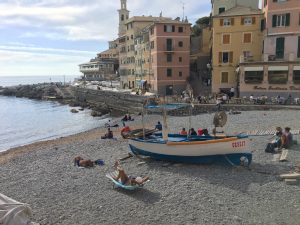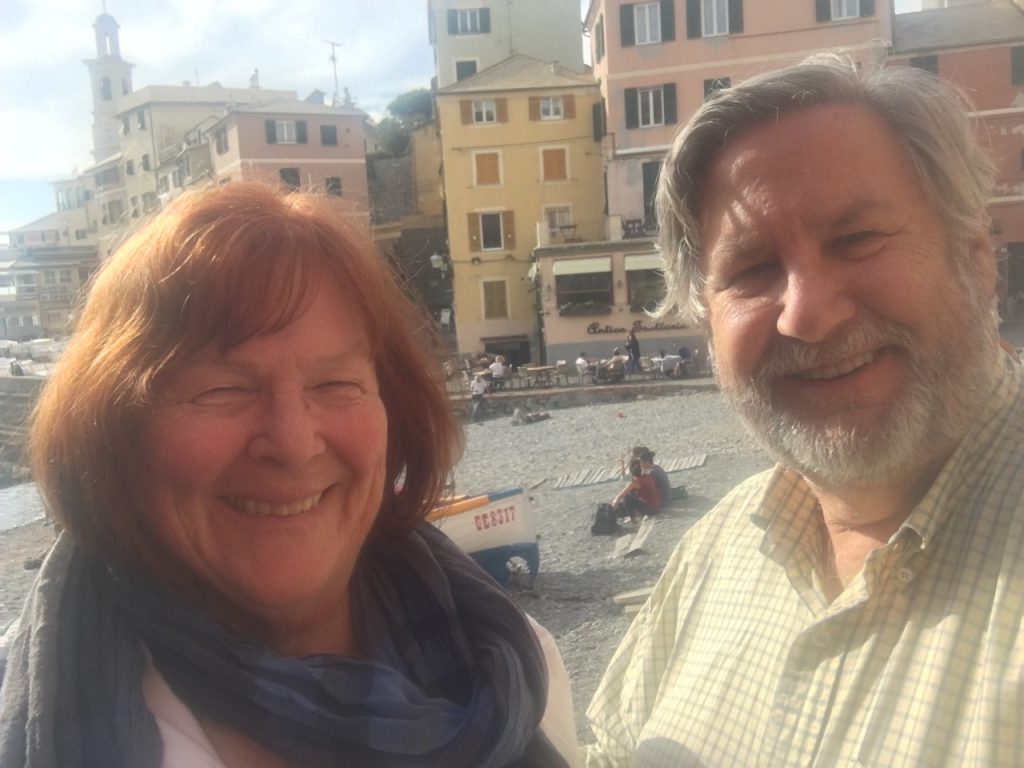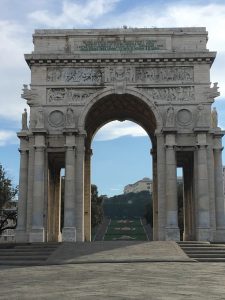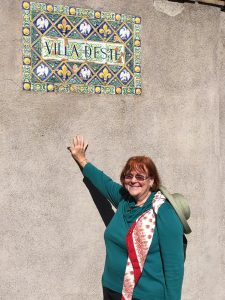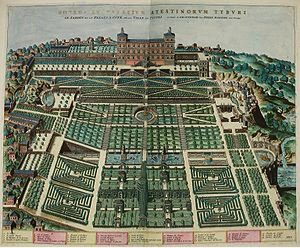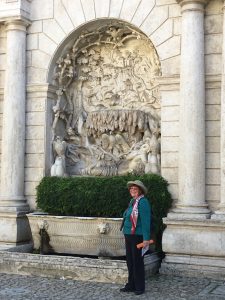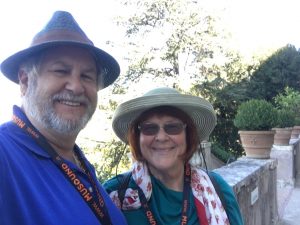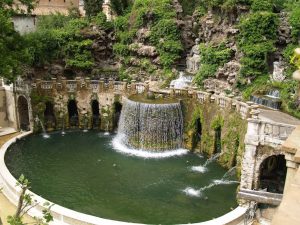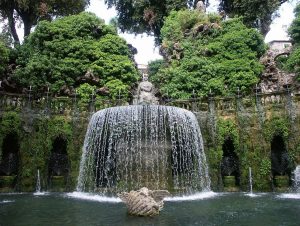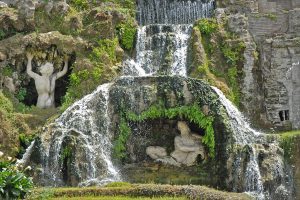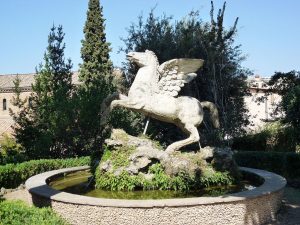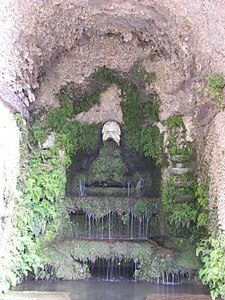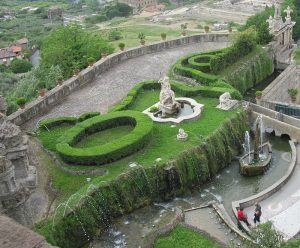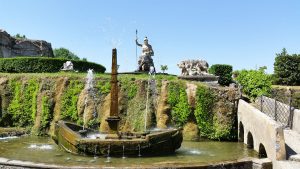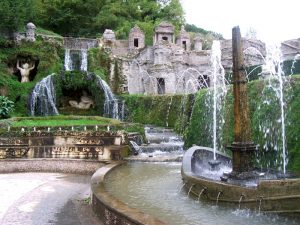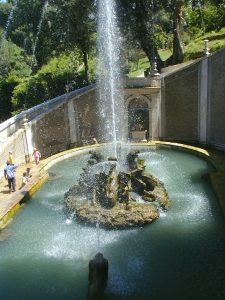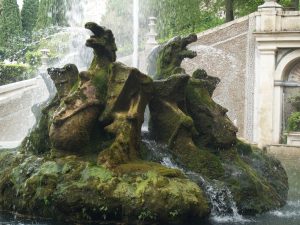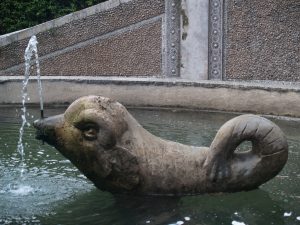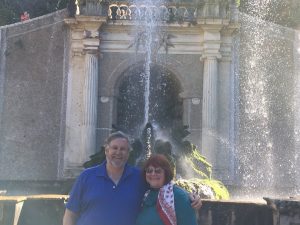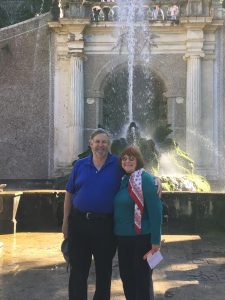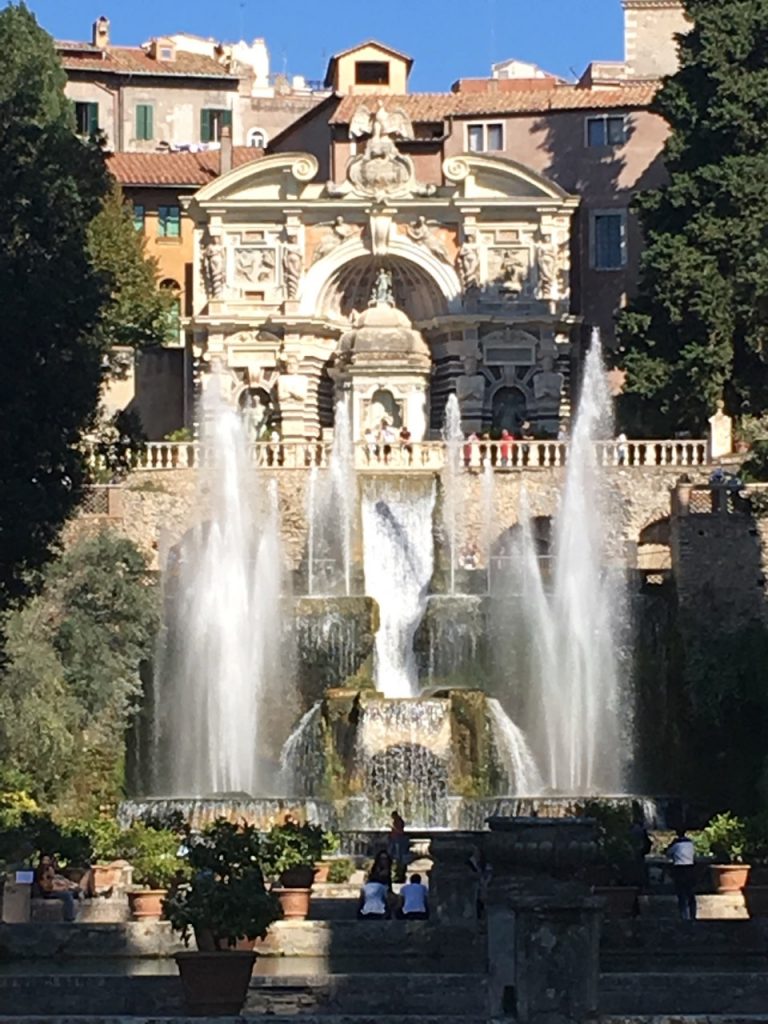Saturday found us at The Château d’ Angers, a castle on the banks of the river Maine and the main point of interest in the city of Angers. Founded in the 9th century and expanded to the current size in the 13th century it is impressive with its high walls, turrets, a dry moat and general imposing appearance.
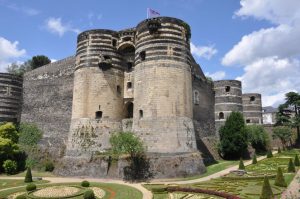
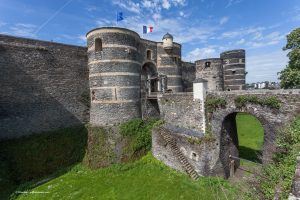
Today, owned by the City of Angers, the massive, austere castle has been converted to a museum housing the oldest and largest collection of medieval tapestries in the world, with the 14th century “Apocalypse Tapestry” as one of its priceless treasures. As a tribute to its fortitude, any invading force in history has never taken the castle. The Angevin empire of the Counts of Anjou developed an artistic and aesthetic core within a military façade. 14th & 15th century court life included a residence, a chapel, and gardens under the parapets. Of course, Janeen found the Plantation, herb garden which included herbs used in the dyes of the tapestry and the vines and floral gardens. The moat is now formal gardens as well.
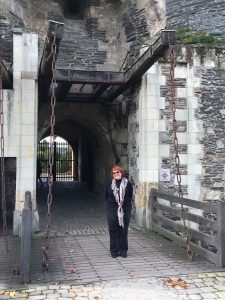
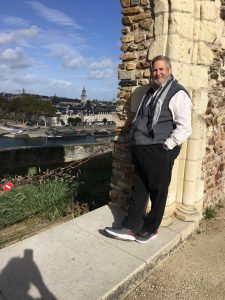
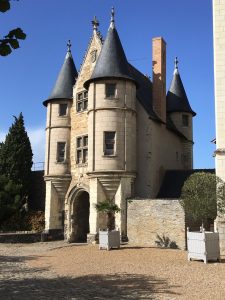
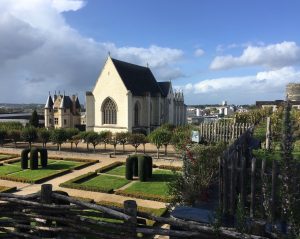
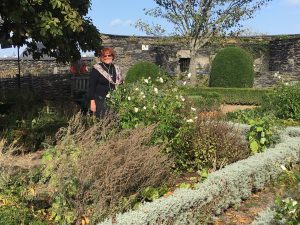
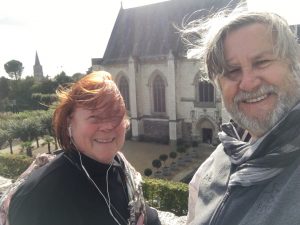
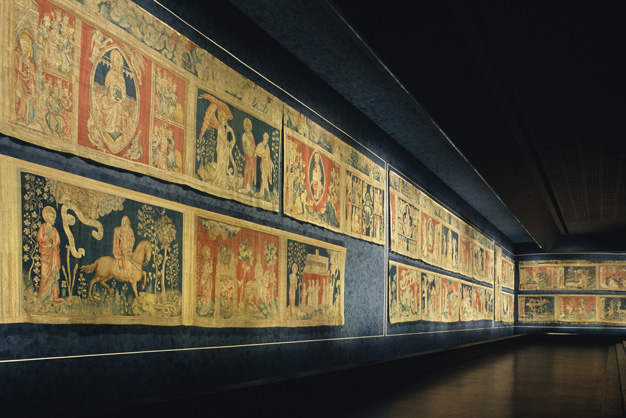
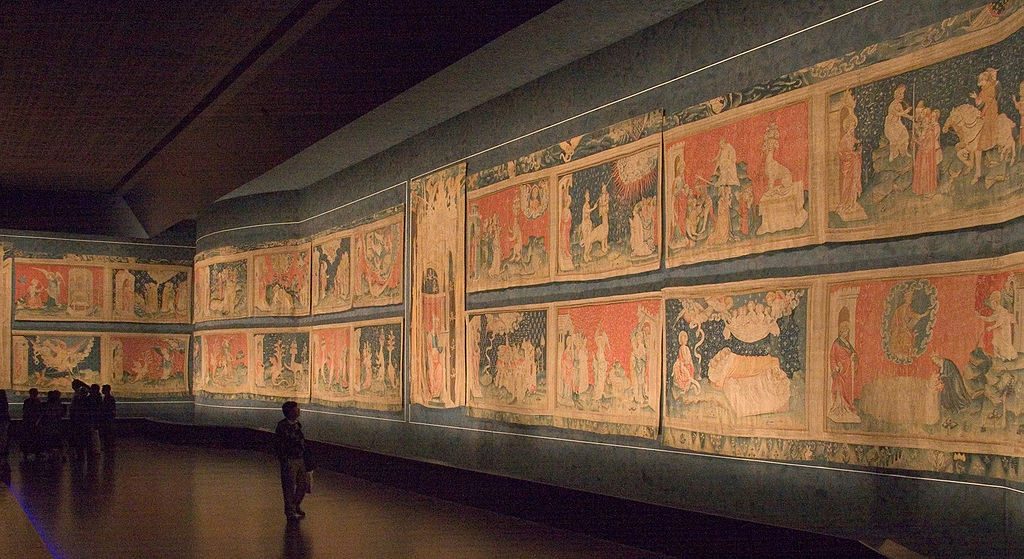
Count Louis I of Anjou commissioned the Apocalypse Tapestry in 1375. Using the cartoons of royal painter Jean de Bruges and woven by Nicolas Bataille, using alternate red and blue background panels woven in wool to retell the story of St. John’s Revelations, the tapestry originally comprised six tapestries measuring 6 meters high and 23 meters long.
In 1480, King Rene, the last Duke of Anjou, bequeathed the tapestry to Angers Cathedral. In the 18th century, it was regarded as old-fashioned and severely mutilated. In the mid-19th century, its true value was appreciated and it was restored. The subject matter was illustrated by using early translations of this first century text, which recounts prophetic visions of St. John and the struggle between Good and Evil. The tapestry work is truly remarkable, as it resembles Renaissance appreciation of realism, and perspective.
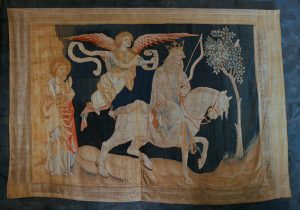
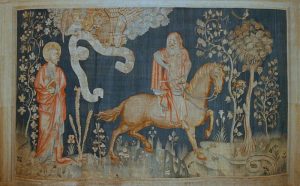
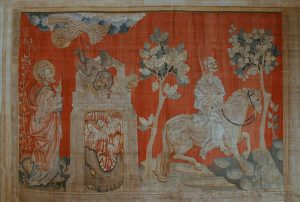
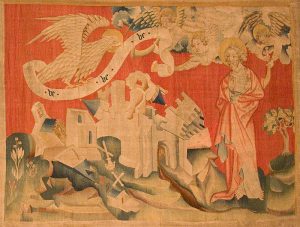
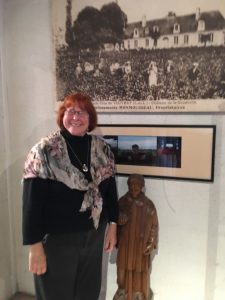
On our way back to our Villa we stopped of for a quick tour and tasting of Chateau Gaudrelle. They are a producer of Vouvray wines – all made from the single varietal, Chenin Blanc. This is the only wine made in the region – and it is a white wine very lovely. We tasted both their sparking and still wines plus a dessert wine. All of which were delightful and low in alcohol – ranging from 12.5 to 13. A wonderful sweet spot for wines as far as I’m concerned. They make about 120,000 cases some of which actually makes it to the US – however mostly on the east coast. We did purchase a sparkling and a still wine to have later but haven’t popped the cork yet.
